- JPB-UG-1: Traffic Sign Detection and Recognition (Liam Wharton)
- JPB-UG-2: Augmented Reality - Wordsearch solver (Josh Keegan)
- JPB-UG-3: Video Analysis - Carcassonne Game Recorder
- JPB-UG-4: Video Processing - Video to Panoramic Picture Converter
- JPB-UG-5: Serious Games - The Type-What-You-Hear Game (Ann Nee Lau)
- JPB-UG-6: Web Programming - Broken Link Alerter (Daniel Mercer)
JPB-UG-1: Traffic Sign Detection and Recognition
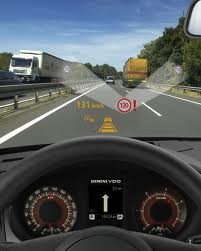
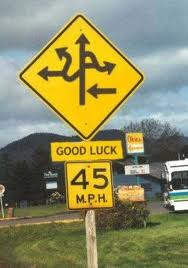



Description
Cars that drive themselves, once a staple of science fiction, are fast becoming a reality. This project will aim to build a key component of a self-driving car: a road sign detection and classification system. The project will employ a large annotated image data set captured from cars driving on real roads and recently made publicly available by the Computer Vision Lab at Linköping University in Sweden. The project will start by using simple template matching techniques but there will be scope for an ambitious student to implement and experiment with more sophisticated approaches.
The data that you will be using is available here.
Requirements
- An interest in Computer Vision and pattern classification. An interest in Swedish road signage.
Initial reading
[TOP]
JPB-UG-2: Augmented Reality - Wordsearch solver

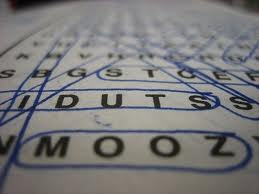

Description
This project will extend the 2nd year COM2004 word-search assignment into a full real-time augmented reality word search solving application. To get an idea of what I mean by this please see this augmented reality Sudoku solver demoed on YouTube here.
Requirements
- An interest in Computer Vision and pattern classification. Good programming skills.
Initial reading
[TOP]
JPB-UG-3: Video Analysis - Carcassonne Game Recorder
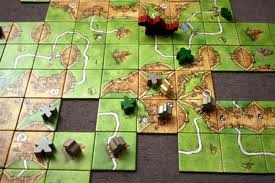
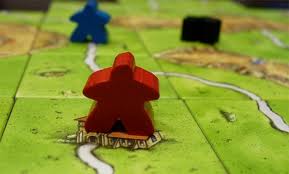
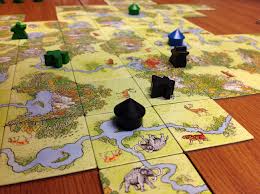
Description
Carcassonne is a card-based strategy game. The game is played on a table top and players take it in turns to lay cards that build up a map of interconnected roads and villages. There are simple rules by which players accumulate points during the game. The object of this project is to build a system that can follow a game from a live video recording. Ultimately the system should be able to i/ keep track of the score during game play; ii/ generate a compact record of the turns, c.f. the recording of chess games using chess notation. There are various Java Carcassonne AI’s online - so it could also be possible to integrate one of these into the project. e.g. so that a player could play against an AI while ‘in the real world’ or so that the AI could be used to give hints to novice players.
Requirements
- An HD USB web camera, a Carcassonne set; an interest in video processing and computer vision. Good programming skills. A willingness to learn C++ would be an advantage.
Initial reading
- http://en.wikipedia.org/wiki/Carcassonne_(board_game)
- Computer Vision on Wikipedia
- The OpenCV computer vision software library on Wikipedia
JPB-UG-4: Video Processing - Video to Panoramic Picture Converter

Description
The aim of this project is to produce a tool for generating panoramic pictures directly from video footage. Although there are existing tools that achieve this by stitching together individual photos (some of which are even fully automatic) , the technique does not work well in dynamic scenes where there is a lot of motion – changes in the scene between photo exposures will lead to discontinuities where the images join. A system that operates with video input – which is effectively taking 50 pictures per second – could potentially solve this problem.
Requirements
- An interest in video processing and computer vision.
Initial reading
[TOP]
JPB-UG-5: Serious Games - The Type-What-You-Hear Game



Description
In order to understand human speech processing (i.e so that we can develop better hearing aids etc) it is useful to study how people mishear words in noisy situations. A typical procedure is simply to ask people to listen to noisy words over headphones and then to type what they hear. However, if you want to collect data from thousands of people there are obvious problems - most notably, how do you persuade people that they want to spend time listening to noisy words? One way of providing the motivation is to build the experiment into a simple web-based game. For example, imagine a game called `Type-What-You-Hear’ that is presented as a speed typing competition. You log into a web-site and are paired up with other competitors. You are all simultaneously presented a series of words over headphones and you score points by being the first person to type the words correctly. The game could keep a leader board and use other ‘gamification’ strategies to increase the engagement of listeners. The listeners are playing a fun online game, meanwhile valuable listening data is being collected for free.
The aim of this project is to build a client-server implementation of the Type-What-You-Hear game.
Requirements
- Java programming and some client-side web programming skill e.g. HTML and Javascript
Initial reading
[TOP]
JPB-UG-6: Web Programming - Broken Link Alerter



Description
If you have a number of ‘assets’ on the web that are hosted by a number of different physical devices then it is not uncommon for hardware problems to lead to unnoticed broken links. These broken links can be found by running a link checker but unless you check your sites regularly you won’t find they’re broken before someone else does. This project will build a solution to this problem that can be made available as a web service: Imagine a site that allows users to create an account and then register URLs that are important to them along with a contact email address. The system then checks every user’s links regularly (e.g. once per day). If any link is found to be down then the corresponding user will be sent an email alert. There are some sites that already offer this service (e.g. http://www.linktiger.com) but as far as I can see they are all commercial and require monthly registration fees – which is surprising because the core functionality should be easy to implement.
Requirements
- Java programming skills.
Initial reading
- http://www.linktiger.com